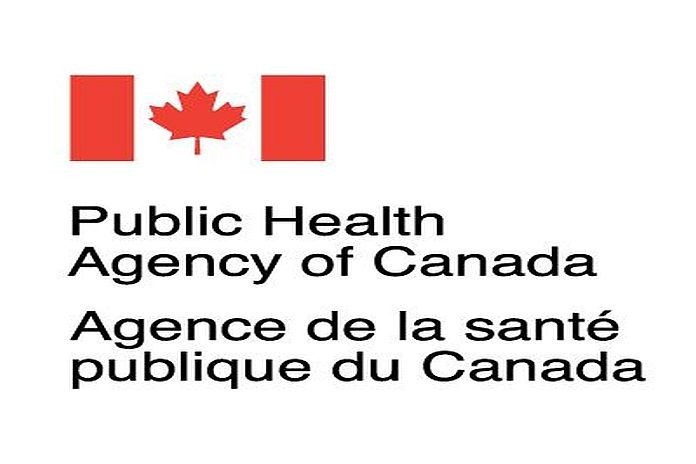By Caribbean News Global ![]()
OTTAWA, Canada – The Public Health Agency of Canada (PHAC) says it continues to monitor COVID-19 epidemiological indicators to quickly detect, understand and communicate emerging issues of concern, according to a statement from the chief public health officer March 25, 2022, that followed a brief summary with the latest national numbers and trends. [ see below COVID-19 data and analyses]
The following was communicated:
With a shift to more targeted testing, a range of other indicators, from laboratory test positivity to daily numbers of people in hospitals and critical care continue to be important for monitoring trends. While average daily case counts have levelled off nationally, there continues to be regional variability across the country with several jurisdictions reporting increases. As public health measures ease, increased levels of transmission are not unexpected since the SARS-CoV-2 virus is still circulating widely. Laboratory test positivity during the latest 7 day period (Mar 16-22, 2022) was 14.5 percent, indicating still widespread activity across the country.
While severe illness trends continue to decline nationally, there is regional variability. The latest provincial and territorial data shows that the average number of people with COVID-19 being treated in hospitals each day during the most recent 7-day period (Mar 18-24, 2022), was 7.4 percent lower than last week. During the same time period, the number of people who were being treated in intensive care units (ICU) daily decreased by 15.3 percent compared to the prior week, and an average of 34 deaths were reported daily (Mar 18-24, 2022). Keeping infection rates down remains key to further reducing severe illness trends and protecting vulnerable populations over the coming weeks.
As we expect the SARS-CoV-2 virus to continuously evolve, we are closely monitoring the domestic and international situation and preparing for new variants. In several jurisdictions, the BA.2 sub-lineage of the Omicron variant is now the predominant variant. The growth rate of BA.2 internationally appears to be highest where there is a combination of low booster coverage and where BA.1 has not already driven high infection rates. While evidence suggests BA.2 is more transmissible than BA.1, BA.2 does not appear to be associated with more severe illness in vaccinated populations. However, it is still capable of causing severe disease among people without prior immunity, which underscores the importance of getting up-to-date with COVID-19 vaccines including a booster if you are eligible.
The latest provincial and territorial data indicate that over 81 percent of the total population are now fully vaccinated. Age-specific vaccine coverage data, as of March 20, 2022, show that over 88 percent of people 12 years or older have at least one dose and over 84 percent are fully vaccinated, while among children aged 5-11 years of age, 57 percent have at least one dose.
Health authorities continue to strongly recommend up-to-date COVID-19 vaccination for all eligible people, including for those who have had or may have had a COVID-19 infection. All told, over 5.2 million eligible Canadians need one or more doses to complete their primary series and many others are eligible to get a booster dose to help improve protection that may have decreased since their second dose and to provide even better protection against severe illness from Omicron. In particular, getting a booster dose if you are eligible, and especially for those aged 50 years of age or older, is very important.
Recent studies indicate that an mRNA COVID-19 vaccine booster dose enhances the overall immune response, which can provide longer lasting protection and possibly better effectiveness against variants. As of March 24, over 17.7 million third doses have been administered to date. National data as of March 20, 2022, indicate that over 83 percent of seniors aged 70 years or older and 61- 75 percent of 50-69-year-olds have received an additional dose.
As we move into a transition phase of the pandemic and beyond, our best advantage going forward will be to maintain vigilance and not forget the personal protective habits we have learned. At the individual level, this can be best achieved by keeping COVID-19 vaccinations up-to-date, including getting a booster dose when eligible and continuing to observe public health advice tailored to local epidemiology and circumstances to guide your individual and family risk assessment and decisions on use of personal protective practices. In particular, properly wearing a well-fitted and well-constructed face mask, avoiding crowding, and getting the best ventilation possible in indoor spaces, are layers of protection that can reduce your risk in all settings.
We can also stay healthier by getting up-to-date with other recommended vaccines and routine vaccines for children and adults. For additional information regarding vaccination in your area, reach out to your local public health authorities, healthcare provider, or other trusted and credible sources, such as Immunize.ca and Canada.ca, which includes information to help Canadians understand the benefits of being vaccinated against COVID-19.
Canadians can also go the extra mile by sharing credible information on COVID-19 risks and prevention practices and measures to reduce COVID-19 in communities. Read my backgrounder to access more COVID-19 Information and Resources on ways to reduce the risks and protect yourself and others, including information on COVID-19 vaccination.
For additional COVID-19 data and analyses, the PHAC posts the following reports:
- Daily Epidemiological Update,
- COVID-19 vaccine coverage data,
- Reported Side Effects Following COVID-19 Vaccination in Canada
- COVID-19 trend reports, including weekly case by case Epidemiological Report
SOURCE: Public Health Agency of Canada.






